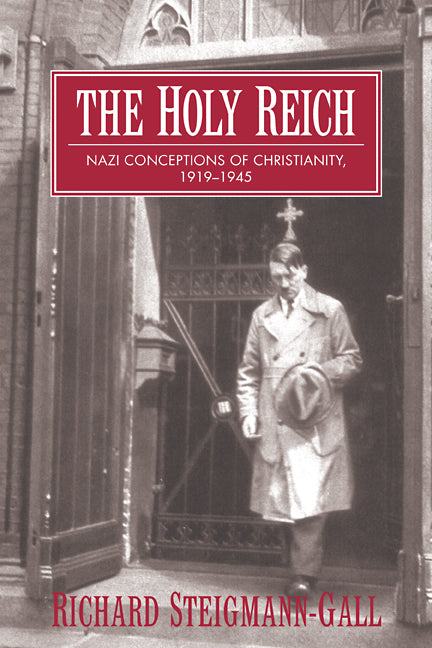Freshly Printed - allow 8 days lead
Couldn't load pickup availability
The Holy Reich
Nazi Conceptions of Christianity, 1919–1945
Steigmann-Gall argues that Nazism was neither unrelated to Christianity nor actively opposed to it.
Richard Steigmann-Gall (Author)
9780521603522, Cambridge University Press
Paperback, published 12 July 2004
312 pages, 15 b/w illus.
22.9 x 15.1 x 2 cm, 0.42 kg
'This is a meticulous, even exhaustive book, offering a dense exploration of a great field of material. … a truly important book which will lead many scholars to refashion or sharpen their perspectives, and even to think again.' English Historical Review
Analyzing the previously unexplored religious views of the Nazi elite, Richard Steigmann-Gall argues against the consensus that Nazism as a whole was either unrelated to Christianity or actively opposed to it. He demonstrates that many participants in the Nazi movement believed that the contours of their ideology were based on a Christian understanding of Germany's ills and their cure. A program usually regarded as secular in inspiration - the creation of a racialist 'people's community' embracing antisemitism, antiliberalism and anti-Marxism - was, for these Nazis, conceived in explicitly Christian terms. His examination centers on the concept of 'positive Christianity,' a religion espoused by many members of the party leadership. He also explores the struggle the 'positive Christians' waged with the party's paganists - those who rejected Christianity in toto as foreign and corrupting - and demonstrates that this was not just a conflict over religion, but over the very meaning of Nazi ideology itself.
1. Positive christianity: the doctrine of the time of struggle
2. Above the confessions: bridging the religious divide
3. Blood and soil: the paganist ambivalence
4. National renewal: religion and the New Germany
5. Completing the reformation: the Protestant Reich Church
6. Public need before private greed: building the people's community
7. Gottgläubig: assent of the anti-Christians?
8. The Holy Reich: some conclusions.
Subject Areas: Religion & beliefs [HR], European history [HBJD]


